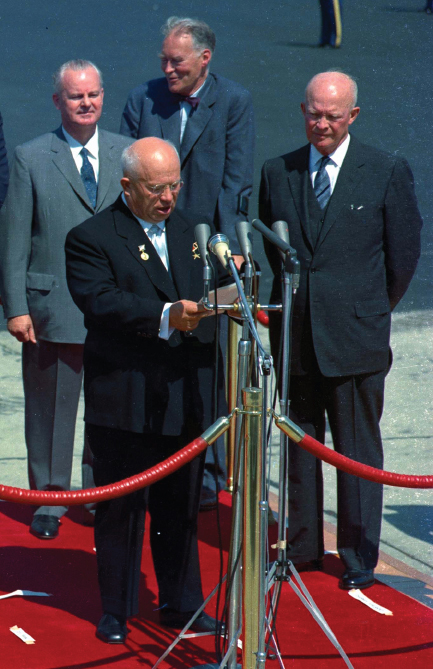How did Eisenhower’s foreign policy differ from Truman’s?
Printed Page 811

AT HIS INAUGURATION IN 1953, Eisenhower warned that “forces of good and evil are massed and armed and opposed as rarely before in history.” Like Truman, he saw communism as a threat to the nation’s security and economic interests, and he wanted to keep the United States the most powerful country in the world. Eisenhower’s foreign policy differed from Truman’s, however, in three areas: its rhetoric, its means, and — after Stalin’s death in 1953 — its movement toward accommodation with the Soviet Union.
Although some Republicans, such as Secretary of State John Foster Dulles, deplored containment as “negative, futile, and immoral,” the Eisenhower administration practiced containment in Vietnam and intervened in Latin America and the Middle East. Eisenhower also pursued an ever-escalating arms race with the Soviet Union but sought to ease tensions between the superpowers toward the end of his presidency.
CHRONOLOGY
1953
- – CIA organizes coup against Iranian government.
1954
- – CIA organizes coup against Guatemalan government.
- – Geneva accords reached.
1955
- – Eisenhower and Khrushchev meet in Geneva.
1957
- – Soviets launch Sputnik.
1958
- – National Aeronautics and Space Administration (NASA) is established.
- – National Defense Education Act is passed.
1960
- – Soviets shoot down U.S. U-2 spy plane.
CHAPTER LOCATOR
What was Eisenhower’s “middle way” on domestic issues?
How did Eisenhower’s foreign policy differ from Truman’s?
What fueled the prosperity of the 1950s?
How did prosperity affect American society and culture?
How did African Americans fight for civil rights in the 1950s?
Conclusion: What unmet challenges did peace and prosperity mask?
 LearningCurve
LearningCurve
Check what you know.